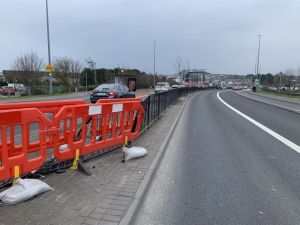Spiralling living costs will cause further struggle to low-income households

New measures to tackle the spiralling costs of living will cause further struggle for those living on the lowest incomes.
That’s according to Sinn Féin’s spokesperson for Social Protection, Claire Kerrane.
The Galway-Roscommon TD responded to measures implemented by the government in the past week to tackle increased living costs and said that people on lower incomes will not be able to afford to make changes in their energy usage.
“Clearly energy costs have been the big issue. I think that’s really where people have really seen the increases, especially over the winter and in the last weeks and months,” said Deputy Kerrane.
“Now there’s clearly a cohort of people who are working and middle-income workers who are really struggling and then making tough decisions. You’ll need to make decisions about reducing how long the heating is on for electricity usage as well” she said.
The ESRI has said that the spike in inflation is due to surging energy costs and global supply chain problems.
The government decided to increase the carbon tax in October, with the aim of re-investing the revenue raised in social welfare initiatives preventing fuel poverty.
When speaking in the Dáil last week, Deputy Kerrane called for a scrap of the carbon tax. She said that it would increase gas prices by around €17, and on a fill of oil by about €19.

“That’s definitely going to make a bad situation worse. Whatever measures were announced last week is not going to take away from the fact that bills are going to go up on the first of May. That’s now a reality, this government isn’t willing to defer or to cancel that increase,” she said.
Defending his party’s proposal, Green Party leader Eamon Ryan, said that the carbon tax was “progressive” and that when it came to delivering on emissions reduction targets, the revenue generated “goes straight back to the people”.
Over the next nine years, it is projected that the carbon tax will generate €9.5bn, of which “€3bn will go to social protection, €5bn will go to the retrofitting, and €1.5bn to farmers,” said Mr Ryan.
“For people that are wealthy, and they can make the changes, they can get an electric car, they can retrofit their homes. They can very much avoid these increases. Whereas people are lower incomes, they’re going to not be able to afford to make the changes” said Deputy Kerrane.
For more Galway Pulse news, click here.







